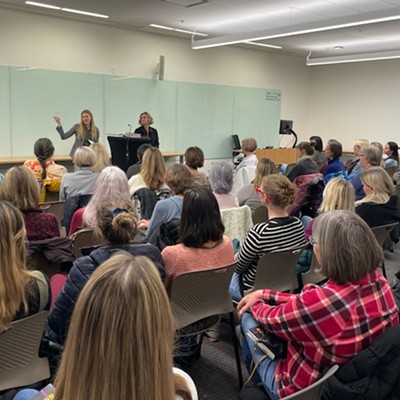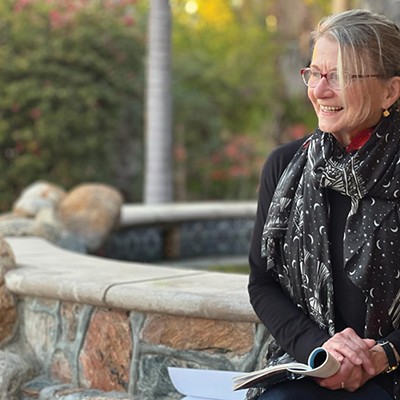Internment camps and jazz. Seemingly unrelated, these two American institutions are former Oregon Poet Laureate Lawson Inada's primary influences—and, when passed through the filter of the now Southern Oregon University professor's poetry and prose, their seemingly disparate relationship becomes clear.
Inada was only four years old when his family began living in the World War II internment camps for Japanese-Americans. At that formative age, Inada's concept of home was shattered and replaced by a strange, if temporary, new reality. Even at that young age, jazz music came to represent a freedom and a sense of place, one in which he ultimately found refuge as a teenager.
Through his seminal collection of poetry "Legends from Camp," winner of the 1994 American Book Award, Inada invites the reader into the various homes his heart has constructed: Camp, Fresno, Jazz, Oregon, and Performance. His style varies from narrative and expository, to rhythmic and abstract; but each poem moves along with the steady chug of a train, travelling through landscapes both physical and ethereal.
In the book, Inada describes receiving jazz records from his father who was sent to work in a munitions factory on the south side of Chicago during the war. Though the young boy had no means to listen to those records, their mere presence, combined with his father's stories and jazz-infused whistling lessons, transported Inada to the city where Fats Waller, Fatha Hines, and Art Tatum's music moved the feet of dancing fans.
"The grooves of those records provide a path, a way, a vision, a direction," Inada writes in the introduction to "Legends' " Jazz section.
In his poems on jazz legends such as John Coltrane, Miles Davis, Thelonius Monk, and Charlie "Bird" Parker, the theme of home is persistent. In " 'Blue Monk' (Linear)," he writes:
"Mr. Blue Monk,
bringing everything we do,
we see, we know,
into melodious focus
through the blue keys
of his blue piano;
therefore, in this blue region,
with this blue vision, in this blue
body of being
we all know as home,
everything throbs and pulses and glows
with the true, blue beauty of his song:
'Blue Monk'!"
In addition to finding a sense of home in jazz music, Inada also writes about being a part of an ethnically diverse community on the west side of Chicago where the music became a salient part of their shared culture.
"[T]he music we most loved and played and used was Negro music. It was something we could share in common, like a 'lingua franca' in our 'colored' community. And in our distorted reality of aliens and alienation, it even felt like citizenship."
Inada will speak on the ways ethnically diverse authors and poets bring their history and culture to the page in his Nature of Words lecture on Thursday, Nov. 7 at Central Oregon Community College's Wille Hall from noon to 1 p.m., $25, as well as in an author reading at Tower Theatre, Friday, Nov. 8, 7 pm, $30; and workshop at OSU-Cascade Campus, Cascades Hall, 9-11 am, $45.























